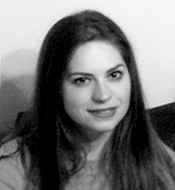Alice Sitch
1. How did you get interested in biostatistics?
My career path is quite straightforward (and boring!). My undergraduate degree was in maths and statistics emerged as my favourite part. I then did a postgraduate degree in statistics, which exposed me to different types of statistics, and medical statistics was the one I wanted to keep doing.
2. Who has influenced you most up to now?
Nick Fieller was responsible for steering me towards statistics as an undergrad at the University of Sheffield. The MSc course in statistics was his passion and I’m very grateful to have been a part of it.
3. What have been your career highlights and challenges?
The challenges are the highlights. The challenges are the problems I identify and the highlights are understanding these problems and presenting alternatives.
4. If you could change one thing in the world of health research, what would it be?
I would like to see more funding for methods research.
5. What advice would you give to someone considering statistics as a career?
Do it! There is so much you can do as a statistician, from the applied side to the theoretical, there are plenty of opportunities. You will never be bored (or lacking work).
6. What do you do every day as a statistician? Is there a typical day? If not give a flavour of what you did in a couple of days this week
Some days I’m in the office analysing data, writing code or writing up results. Some days I’m in meetings and I might be consulting or collaborating on new projects or analyses. Some days I’m at conferences presenting my work and meeting fellow statisticians or applied health researchers. Other days I’m teaching and interacting with new doctors and mathematicians.
7. What do you find most interesting in the job?
Nothing stands still, there are always new problems.
8. What motivates you as a statistician?
The work we do makes a difference.
9. Do you ever have a day when you don’t learn anything?
Not really, sometimes you don’t think you will but you invariably do.
10. What are the type of skills you use in your job?
The obvious ones are analytical and technical skills; however, I think communication is the most important skill as a statistician, followed by integrity, scepticism and persistence.
11. Are there different types of medical statistician? What sort of statistician are you?
You could say there are trial statisticians, teaching statisticians, methodologist statisticians and applied statisticians but I think most statisticians do a bit of all of these rolls; I certainly do.

